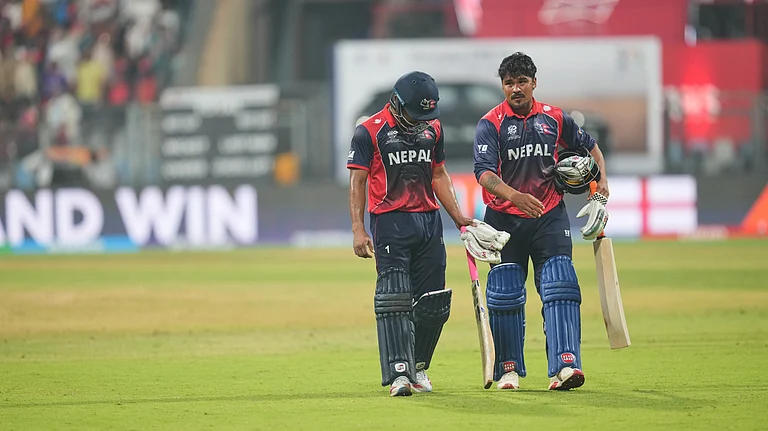- Suspended Chief Justice Iftikhar Mohammed Chaudhry took 26 hours to cover the 260-km distance from Islamabad to Lahore
- The huge turnout along the route reflects the popular upsurge against Musharraf-and support for Chaudhry
- It shows the clout of political parties, as they organised the roadshow
- Show of people's power could prompt Benazir to rethink her decision of striking a deal with Musharraf
- PPP leader Aitizaz Ahsan is the new political hero. Could break from Benazir and form his own party
- Finally, the movement is about democracy and primacy of the rule of law.
***

Soon after Lahore, Chaudhry was to notch up another victory in Islamabad. The Supreme Court stayed the proceedings of the Supreme Judicial Council (SJC), which has the task of verifying the government's charge that Chaudhry had misused his office, a charge which led to his suspension. However, it accepted the government's plea for a full court to hear the petitions challenging the SJC's composition and other related matters. "This ruling has supported our viewpoint that the SJC is unconstitutional. This is a partial victory for us," said Ahsan after the ruling.
The political momentum is currently dependent on the twists and turns the fight between the judiciary and the government could take. The fizz could go out of the upsurge should the establishment bow to Chaudhry's spunk. But herein lies the catch: Musharraf can't retreat because it might undermine his authority and erode the legitimacy of his rule. There's also Musharraf's character to reckon with. He is among those for whom pride and prestige are paramount. Musharraf has reportedly commented in private, "I cannot be defeated. The CJ will have to say goodbye."
Considering Musharraf's decision to address a rally in Islamabad on May 12, the day Karachi hosts Chaudhry, it's clear the president is girding himself for a prolonged battle with the nation. This is why the more politically conscious hope that the PML(N) and the PPP will get their act together to provide a fresh impetus to the movement. This section feels that the legal fraternity can only fight for the independence of the judiciary; and only political parties can lead the battle for restoration of true democracy.
But are the political parties prepared to take the risk of challenging Musharraf? Says Kamal Siddiqi, an editor with The News, "If there has been a disappointment for Pakistanis of my generation, it has not been the military but Benazir Bhutto. She is willing to compromise at a time when she should stand strong. " What Siddiqi is referring to is the speculation about an imminent deal between the PPP and Musharraf, a speculation which has gained ground because Benazir has publicly confessed to having kept open the channels of communication with him. She has also harped on the benefits of such a deal for Pakistan. Accepting she's in contact with the military regime, Benazir recently told the monthly Herald, "... It is premature to say at this stage whether there would be an understanding. The PPP does not accept army rule. We are looking for a transition to democracy."
But a deal with the army is hardly the route to democracy. For, the generals are now Pakistan's favourite target of hate. Former bureaucrat Roedad Khan, who, despite his old age, can be seen protesting on Constitution Avenue in support of the judiciary, says, "Today, freedom from military rule has become a patriotic duty. I think that at all times I should have loved freedom from army rule, but in times in which we now live, I am disposed to worship it."
It's this upsurge for 'unguided' democracy which prompts political analysts to wish that Sharif and Benazir take forward the popular challenge to the military. Otherwise, they might lose the people's support for all times to come. Says Imtiaz Alam, who heads SAFMA (South Asia Free Media Association), "The time has come for the self-exiled leadership to return and close the doors on self-serving approaches. Otherwise, the movement on the streets will find its own leaders who may be far more clear and committed to people's well-being. On the streets of Pakistan there has already formed an all-party alliance espousing restoration of democracy, supremacy of the constitution, independence of judiciary, rule of law, free media and an executive subservient to elected representatives. It already has an enlightened, collective leadership of the legal fraternity which has surprised everybody with an exceptional show of solidarity and steadfastness."
Agrees Rasheed Rahman, executive editor of The Post, "Pakistan is once more poised on the cusp of change. What direction it will take, how long this struggle could be, what the outcome may be, all these are vital questions requiring a free and broad debate amongst all citizens. It is the people who have to rise to the needs of this historic conjuncture, if they are to be placed centrestage in the decisions to be made about the country's future."
As people chart the agenda for the future and Benazir mulls the idea of striking a deal with Musharraf, most analysts agree the change sweeping Pakistan has thrown a new political leader—Aitizaz Ahsan—who has scripted the judiciary's challenge and given it a political direction. He's said to be giving sleepless nights to Benazir. So, will he be tempted to float his own party, say, a Justice Party for the elections? The man who led the cavalcade from Islamabad to Lahore only smiles at the question. He isn't talking, at least for now.





















